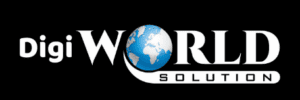Digital marketing is an ever-evolving landscape, and staying up-to-date with the latest trends is crucial for businesses aiming to maintain a competitive edge. As we step into 2023, a new wave of trends is set to shape the way we approach online marketing strategies. From advanced technologies to changing consumer behaviors, let’s delve into the top 10 digital marketing trends that deserve your attention.
1. AI-Powered Marketing: Redefining Personalization
Artificial Intelligence (AI) is no longer a novelty; it’s becoming a powerhouse in marketing. With AI-driven insights, businesses can analyze massive amounts of data to understand consumer preferences, behaviors, and buying patterns. This enables hyper-personalized marketing campaigns that resonate with individual customers, boosting engagement and conversions.
2. Voice Search Optimization: Conversations Rule
Voice search continues its ascent in the digital realm. As voice assistants like Siri, Alexa, and Google Assistant become household names, optimizing content for voice search is imperative. Long-tail keywords and natural language patterns take center stage, demanding a shift in SEO strategies for businesses striving to be heard in voice-driven searches.
3. Video Marketing Evolution: Interactive and Shoppable Content
Video marketing remains a dominant force, but it’s evolving. Interactive videos, where viewers actively engage with content, are gaining traction. Additionally, shoppable videos, allowing viewers to purchase products directly from videos, bridge the gap between entertainment and e-commerce, enhancing the customer journey.
4. Personalization at Scale: Data-Driven Experiences
Customers now expect tailored experiences. Personalization at scale involves leveraging customer data to provide relevant content, product recommendations, and offers. This trend isn’t just about adding names to emails; it’s about anticipating needs and desires, creating deeper connections between brands and consumers.
5. Blockchain in Digital Advertising: Trust and Transparency
Blockchain’s decentralized nature addresses digital advertising’s challenges, such as ad fraud and lack of transparency. It ensures trustworthy tracking of ads, providing accurate data on impressions and engagements. This technology is reshaping digital advertising by instilling trust and accountability into the ecosystem.
6. Augmented Reality Experiences: Interactive Engagement
Augmented Reality (AR) is making marketing more immersive. From virtual try-on experiences in the beauty industry to visualizing furniture in a living space, AR creates interactive engagements that allow customers to experience products before purchasing, enhancing their confidence in buying decisions.
7. Ephemeral Content Strategies: FOMO-Driven Marketing
Ephemeral content, available for a limited time, taps into the Fear of Missing Out (FOMO) psychology. Platforms like Instagram Stories and Snapchat offer prime real estate for sharing behind-the-scenes glimpses, flash sales, and exclusive content, fostering a sense of urgency and exclusivity.
8. Sustainability and Green Marketing: Ethical Branding
Consumers are increasingly drawn to sustainable and socially responsible brands. Green marketing involves showcasing eco-friendly practices, responsible sourcing, and a commitment to reducing environmental impact. Brands that align with these values resonate better with conscious consumers.
9. Inclusive and Diversity-Centric Campaigns: Embracing Differences
Inclusivity is no longer an option; it’s an expectation. Brands are embracing diversity by creating campaigns that celebrate various cultures, body types, abilities, and backgrounds. Such campaigns resonate authentically with a broad audience, fostering loyalty and positive brand perception.
10. Social Commerce Growth: Shopping on Social Media
Social media platforms are transforming into shopping destinations. Social commerce integrates shopping features directly into platforms like Instagram, Facebook, and TikTok. This seamless shopping experience reduces friction in the buyer’s journey, resulting in increased conversions.
Conclusion
The digital marketing landscape in 2023 is poised for innovation and transformation. From AI-powered personalization to the integration of sustainability values, these trends will shape how brands connect with their audiences and drive business growth. Staying adaptable and embracing these trends will be key to thriving in this dynamic environment.
FAQs
Q1: How can AI enhance my marketing efforts?
Ans: AI can analyze data to understand customer preferences and behaviors, enabling personalized marketing strategies that drive better engagement and conversions.
Q2: Why is inclusivity important in marketing?
Ans: Inclusivity showcases a brand’s commitment to diversity, fostering positive connections with a wider audience and enhancing brand reputation.
Q3: What is social commerce?
Ans: Social commerce involves integrating shopping features into social media platforms, enabling users to shop directly without leaving the app.
Q4: How can I optimize for voice search?
Ans: Optimize for voice search by using natural language, focusing on long-tail keywords, and structuring content to answer common voice queries
Q5: Why is sustainability a marketing trend?
Ans: Sustainability resonates with conscious consumers who value ethical practices, and showcasing sustainability efforts can attract and retain environmentally-aware customers.
